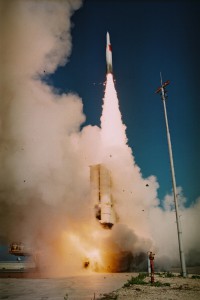Crónica de una muerte anunciada titulada “Spanair”
January 30, 2012
Ha terminado otra mala idea, la española Spanair anunció su cierre de operaciones el viernes 27 enero 2012. Si miramos algo hacia atrás, veremos que lo anterior corresponde al término de otra inversión y operación no evaluada adecuadamente, al igual que la construcción de muchos aeropuertos internacionales en el mismo país de la aerolínea y que comentamos anteriormente en esta sección.
Las inversiones y negocios aéreos, deben ir de la mano de buenas decisiones, las cuales son difíciles de tomar cuando estas tienen consideraciones políticas de por medio y participan en su financiamiento los gobiernos locales, es decir, esto era previsible.
Los intentos de salvarla, seguramente murieron al estar considerado todo el ámbito aéreo español, el cual, aparentemente, no goza de buena salud, los pilotos, los controladores, los sindicatos y todo el recurso humano del sistema español ha matado a otra compañía.
Consolidar el bienestar en el tiempo, sólo es fruto del trabajo de su gente, el ingenio de sus directores y el realismo político de quienes participan en su ambiente, todo lo demás, son sólo sueños y como tales, terminan tarde o temprano.
Chile impuso una frase después de rescatar a sus mineros atrapados a 700 m. de profundidad en una mina de cobre y la denominaron “Chilean Way” (a la chilena), España tiene la suya, “a la española”. Resultados dispares ambas dos.
Esto ha sido una crónica, de una muerte anunciada.
Si Rusia aprendiera de occidente …
January 26, 2012
China se consolida poco a poco como Potencia y con “paciencia china” se prepara para ello, ya tienen a miles de sus mejores jóvenes en las universidades top del mundo y en especial en las de los Estados Unidos, para que aprendan no sólo materias o asignaturas determinadas, sino también, para que conozcan a occidente, se relacionen con su gente, tiendan redes de contactos y aprendan como funcionan los países desarrollados. Serán ellos quienes controlen el poder en 20 años más probablemente y sus contactos estarán muy desarrollados y bien ubicados casi con seguridad.
Materias especiales son las que tienen relación con los mercados, marketing, comercialización y servicio post venta entre otras, las que son fundamentales para poder ofrecer, comercializar y apoyar posteriormente cualquier negocio, sin embargo, es común leer en los periódicos y revistas, como el material aéreo (nuevo) de ex países comunistas es entregado al comprador y luego “dejado a su suerte”, lo que pareciera ser una “política” normal en sus ventas.
Casos en América hay muchos y cada vez se sigue repitiendo la historia, tiempo atrás fue Chile con un helicóptero polaco (nuevo) dejado a su suerte por años, ahora es otro país el que recibió helicópteros nuevos y que están “a la espera” de personal capacitado para estar operativos.
Si Rusia aprendiera de occidente…
Macquarie AirFinance leases two 737-800s to Aerolineas Argentinas
January 26, 2012
DUBLIN, 26 January, 2012 – Macquarie AirFinance, a global aircraft leasing company based in Dublin, Ireland,
today announced that it has delivered two Boeing 737-800 aircraft to Buenos Aires-based operator Aerolineas
Argentinas. The 2001-build aircraft, MSN 30478 and MSN 30750, were delivered to Aerolineas Argentinas on
23 December, 2011 (MSN 30570) and 20 January, 2012 (MSN 30478).
These aircraft will be the first 737-800s to be incorporated into the Argentine flag-carrier’s fleet and will be used
primarily on domestic and regional routes within Latin America. State-owned Aerolineas Argentinas and its
wholly owned subsidiary Austral serve an extensive network of routes within Latin America, North America,
Europe and Australasia operating a fleet of 77 aircraft. Since 2009 Aerolineas Argentinas and Austral have been
implementing a fleet renewal program which targets year 2014 to consolidate a fleet composed of Airbus
A330s/A340s, , Boeing 737NGs and Embraer E190s.
Mariano Recalde, President and CEO / Grupo Aerolíneas Argentinas stated: “The introduction of the B737-800
fleet in Aerolíneas Argentinas represents a significant step forward in an ambitious fleet renewal plan initiated in
2009 and based on the National Government interest to secure strategic airline connectivity in our Country and
between neighboring nations. The Boeing 737-800 contributes to our fleet modernization allowing competitive
operation to high density destinations while providing a higher quality service to our passengers.”
John Willingham, Chief Executive Officer of Macquarie AirFinance, said: “I wish to extend a warm welcome to
our latest customer in the high-growth South American market. We have been involved with the Aerolineas
Argentinas group for several years via our lease with Austral, but these leases are the first direct transactions
between Macquarie AirFinance and Aerolineas Argentinas. We look forward to building on this important
relationship.”
EADS Board of Directors announces future top management appointments and Board composition
January 26, 2012
Amsterdam, 26 January 2012 – The EADS Board of Directors has met today for
one of its regularly scheduled meetings in Amsterdam. During this meeting the
following decisions have been taken:
Chairman and CEO
EADS N.V. announces that its Board of Directors has designated Tom Enders
to take over the role of CEO when Louis Gallois steps down at the end of his
mandate.
Concurrently, Arnaud Lagardère will assume the role of Chairman of the Board
presently held by Bodo Uebber.
The change-over was prepared diligently by the Board and results from the
application of the succession process under the governance of EADS, which
was updated in October 2007. It will take place after the company’s Annual
General Meeting (AGM) on 31 May, 2012. These new mandates carry a fiveyear
term.
Bodo Uebber, the Chairman of the Board, said: “Today’s decisions mark a very
important milestone in the development of EADS. Having clarity about the
Board and management positions enables EADS to build a bright future for the
long term on solid foundations. I am very pleased and proud with the overall
composition of the Board of Directors and with the appointments to the
management team, especially with its multi-national character. I know that my
successor Arnaud Lagardère and all of us share the same strong interest and
ambitions for EADS.”
EADS CEO Louis Gallois stated: “The management is grateful that the Board
has taken these wide-ranging decisions, in a dispassionate climate, and timely
to facilitate a professional transition. Tom Enders not only has a wide range of
experience across our businesses, but strong leadership skills and charisma
with an established track record. I am sure that he will extend his vision for
EADS in the best interest of all its stakeholders and in particular of the great
community of employees working together across our nations.“
Sir John Parker, Chairman of the Remuneration and Nomination Committee,
concluded: “It was with great satisfaction that through our succession planning
process we have found such a wealth and breadth of talents inside EADS. We
chose the right person for each of the open positions, to rise to the upcoming
strategic challenges facing this Group, and maintain its hard earned leadership
positions. It is regrettable that this generation of management could not yet
incorporate female appointments, but I feel comforted that the next wave is
showing some very promising prospective candidates for subsequent rounds of
succession.“
Other top management positions
Following the recommendations of the Remuneration and Nomination
Committee, the Board also announces further evolutions of the management
team effective 1 June, 2012:
• Fabrice Brégier will succeed Tom Enders and become CEO of Airbus,
EADS’ largest division, and Günter Butschek, presently Head of Operations
of Airbus will be affected to the position of COO of Airbus.
• Harald Wilhelm will become Chief Financial Officer (CFO) of EADS,
alongside his present role as CFO of Airbus, following the request of
Hans Peter Ring to retire from the company and pursue other objectives.
Hans Peter Ring will be preparing his successor for this transition over the
next months, and will remain close to him as a senior advisor until the
end of 2012.
• Marwan Lahoud, whose mandate comes up for renewal, is reappointed as
Chief Strategy and Marketing Officer (CSMO).
• Thierry Baril will assume the role of Head of Human Resources (HR) for
EADS; he will retain his duties as Head of Airbus HR together with his
expanded responsibility. Jussi Itävuori leaves the company after ten years
as Head of HR for EADS. He continues to represent EADS in the Board of
Directors of Patria in Finland.
Board of Directors
As for the Board of Directors, most current Board members will stand for reappointment,
carrying the experience gained over the last five years into the
new Board. The following names will be proposed for appointment by the AGM:
• Arnaud Lagardère, 50, Managing Partner of Lagardère SCA;
• Tom Enders, 53, Chief Executive Officer of Airbus SAS;
• Hermann Josef Lamberti, 55, Member of the Management Board of
Deutsche Bank AG;
• Sir John Parker, 69, Chairman of Anglo American PLC;
• Michel Pébereau, 70, Honorary President of BNP Paribas;
• Lakshmi Mittal, 61, Chairman and Chief Executive Officer of ArcelorMittal;
• Bodo Uebber, 52, Member of the Management Board of Daimler AG;
• Wilfried Porth, 52, Member of the Management Board of Daimler AG;
• Dominique D’Hinnin, 52, Co-Managing Partner of Lagardère SCA;
• Jean-Claude Trichet, 69, Former President of the European Central Bank;
• SEPI, the Spanish state holding company, will provide the name of the
director representing it in the coming weeks.
Juan Manuel Eguiagaray and Rolf Bartke have chosen not to stand for
reappointment.
Dassault Falcon’s West Palm Beach Satellite Service Station Opens
January 24, 2012
(Teterboro, NJ, January 24, 2012) – Dassault Falcon’s newest Satellite Service Station
recently opened, one month ahead of schedule, at West Palm Beach Airport (KPBI) in
Florida. DAS – West Palm Beach is authorized by the FAA to perform “A” inspections up
to the “4A+” inspection on the Falcon 50, Falcon 2000 and Falcon 900 family of aircraft
as well as the Falcon 7X. EASA approval is expected within the next 30 days. Operators
can contact our DAS – Wilmington facility to schedule their aircraft for maintenance.
“This facility allows us to offer expanded service for all operators but will be especially
appreciated by operators in the Eastern United States and Central and South America,”
said Bob Sundin, Senior Vice President of Dassault Aircraft Services. “Dassault Falcon
has been aggressively expanding our ‘footprint of service’ and this is a critical piece to
our strategy.”
In addition to the service station, a Falcon AOG ‘GoTeam’ is also located at the facility.
A ‘GoTeam’ provides rapid mobile response directly to an aircraft location with the parts,
tooling and personnel necessary to get an operator’s Falcon flying with minimal delay.
AOG response time will now be reduced as the ‘Go Team’ will be able to respond within
the region in a couple of hours.
The facility in West Palm is part of a global support system which includes similar
stations in St. Louis, Missouri; Luton-London, U.K., Rome, Italy; Moscow, Russia and
Nice, France. The West Palm Beach facility has about $500,000 in tooling, equipment
and Falcon spares in addition to a hangar, shop and offices for employees and
customers.
Israel Aerospace Industries and Boeing Mark 10 Years of Cooperation on the Arrow Weapon System
January 23, 2012
Ben Gurion Intenrational Airport, 23.1.2012 – Israel Aerospace Industries (IAI) announced today that it has expanded its agreement with Boeing on the Arrow Weapon System (AWS). Leaders of both companies gathered at IAI/MLM Division for a signing ceremony to celebrate the 10th anniversary of the partnership and to extend the commitment to work together.
“This new agreement is the next logical step in our relationship with Boeing and a strong opportunity for both companies to play a bigger role in the missile defense market. It is based on a strong foundation of successful cooperation,” said Itzhak Nissan, IAI President and CEO.
The IAI-Boeing Strategic Teaming Agreement aims to explore and develop new opportunities in the missile defense arena. During the past 10 years, IAI and Boeing have collaborated on the successful development, production and deployment of AWS. As the world’s first operational national missile defense system, AWS has become a vital, anti-ballistic missile defense strategy for Israel’s national defense.
“We are pleased to mark this occasion with our partner IAI, as well as expand our agreement for future cooperation on missile defense initiatives,” said Boeing Network & Space Systems President Roger Krone. “The Arrow program demonstrates Boeing’s commitment to developing international missile defense partnerships around the globe.”
The event, hosted by Uri Sinai general manager of IAI MLM division, launched an expansion of the collaboration extended and enhanced the IAI-Boeing Strategic Teaming Agreement to explore and develop new opportunities in the missile defense arena. During the past 10 years, Boeing and IAI have collaborated on the successful development, production and deployment of AWS. As the world’s first operational national missile defense system, AWS has become a vital, anti-ballistic missile defense strategy for Israel’s national defense.
“We are very pleased with the development of our relationships and we defiantly look forward to reach even higher level of business cooperation with Boeing. It is a very good response by the two companies for future challenges” said Joseph Weiss, vice president and general manager IAI Missile Space and Systems group.
IAI is the prime contractor for the AWS program. It has initiated, developed and deployed the in-service Arrow 2 program and, together with Boeing, is developing the Arrow 3 system – a crucial asset in Israel’s multi-tier anti-ballistic defense strategy.
“Boeing’s relationship with IAI has produced an innovative, versatile and affordable advanced missile defense capability. We look forward to our continued partnership and the development of the next generation of Arrow interceptor,” said Dr. Greg Hyslop, vice president and general manager of Boeing Strategic Missile and Defense Systems.
The celebration drew the participation of senior officials from the Israeli Ministry of Defense, including Rear Admiral (Res.) Ophir Shoham head of Research and Development directorate and the newly appointed head of Israeli Missile Defense Organization, Yair Ramati. Many industry executives and experts also attended.
The Arrow program has been a cooperative effort between the U.S. Missile Defense Agency and the Israel Missile Defense Organization since 2002.
�
�
�
�
�
�
�
�
�
�
�
�
�
�
Arrow Missile test
�
SCAC and Aeroflot sign the Act of Delivery & Acceptance for the SSJ100 MSN 95015
January 23, 2012
January 23, 2012, Moscow – On completion of Technical acceptance procedure, JSC “Sukhoi Civil Aircraft“ (SCAC) and Aeroflot signed today the Act of Delivery & Acceptance for the fifth deliverable Sukhoi Superjet 100 MSN 95015 at Komsomolsk-on-the Amur. The aircraft received the name after the famous Aeroflot’s pilot Dmitry Barilov and the tail number RA-89007.
The document, signed by the parties, states that the aircraft is technically sound and fully meets the performance criteria. The Act of Delivery & Acceptance also confirms that the SSJ100 is transferred to the carrier with a full set of required operational and maintenance documentation and flight kit. The aircraft is ready to start commercial operation on Aeroflot domestic and international route network.
The aircraft is planned to fly from Komsomolsk-on-the Amur to Moscow on January 27, 2012.
Cielos muy abiertos
January 23, 2012
Muy pronto, en pocos meses más, los cielos de Chile se abrirán para todas las aerolíneas extranjeras que deseen hacer vuelos en el interior del país tanto de carga como de pasajeros, sin necesidad de que exista una política de reciprocidad con el país de origen de la aerolínea.
Lo anterior, ha causado cierto malestar en las empresas aéreas mas pequeñas que operan en dicho país, sin embargo, la autoridad aeronáutica está decidida a dar pasos en pos de lograr mayor competencia en un mercado que es bastante pequeño, comparado con muchos países de la región.
La resolución es audaz, pero Chile ya nos tiene acostumbrados a este tipo de decisiones y con buenos resultados, las que sin duda serán observadas por toda la comunidad latinoamericana con mucha atención.
ATR: Regional bestseller of 2011 with 157 aircraft sold
January 18, 2012
ATRs are leading the regional market and have become the bestseller for planes with 90 seats or less in 2011
ATR’s 2011 results attest to the structural changes in the regional transport market, making ATRs the new reference in this sector. ATRs represented more than 80% of regional airplane sales in 2011, confirming the domination of turboprop aircraft on regional routes. Their low fuel consumption, combined with comfort and advanced technology are the main reasons for ATR’s success, the first signs of which were felt in 2005.
The regional aircraft manufacturer ATR recorded its best commercial year in 2011, posting firm sales of 157 planes and options for an additional 79 aircraft. These 157 firm sales (13 ATR 42s and 144 ATR 72s) round out the manufacturer’s order book for a record high of 224 aircraft, ensuring 3 years of production, taking into account the production ramp up starting in 2012.
During a press conference held in Paris this morning, Filippo Bagnato, Chief Executive Officer of ATR, said he was “very pleased with the outstanding commercial performance in 2011. Our success is based on our ability to answer to the market requirements. Airlines are increasingly looking for planes that combine the lowest operating costs, cutting-edge technology, comfort and environmental friendliness. In this context, ATRs and particularly our new series of aircraft, the 600, have proven to be the best choice for regional routes in terms of meeting these requirements in regional routes.”
ATR recorded 157 firm orders and 79 options (table 1) with 18 clients worldwide, including 10 new customers. Existing clients have renewed their trust in ATR in order to develop their networks and meet the increase in local traffic. Among its new clients, the majority of ATR aircraft purchased in 2011 will be intended to replace an older fleet of first-generation regional jets or turboprops (non-ATR planes).
Leasing companies represented over 20% of ATR’s sales in 2011, which confirms that ATRs are increasingly attractive to aircraft lessors. Their low operating and maintenance costs, their high standard of comfort, thanks to the new “Armonia” cabin for the -600 series in particular, and a base of approximately 180 ATR operators in 90 countries make them major assets for aircraft leasing companies. ATR’s success has really ramped up in recent years, with half of all orders (totaled over the past 30 years) being recorded since 2005.
Certification of the ATR 72-600 in May 2011, as well as of the associated training tools, enabled the European turboprop manufacturer to introduce new standards of comfort and leading-edge technologies into regional market. Since their entry into service last August, ATR 72-600s have made over 3,000 flights, posting an initial technical reliability of over 99.7%.
ATR delivered 54 aircraft in 2011 (table 2), including 10 ATR 72-600s.
At the end of 2011, the 224 planes on the order books totaled an estimated US$ 5 billion. As a result, ATR will substantially increase its delivery schedule in order to meet the strong demand for ATRs worldwide. ATR plans to deliver over 70 aircraft in 2012 and to increase its deliveries to a minimum of 80 units as of 2013. With the ramp-up of its delivery schedules, ATR should see its turnover, which currently stands at $1.3 billion, reach $2 billion in the near future.
Filippo Bagnato said: “We are currently experiencing a real reversal of the trend in the regional market. Jets with 90 seats or less are gradually losing their place. And he added: “Today, ATR holds 70% of the order book for regional aircraft with 90 seats or less. This success was born of a continuous improvement policy, economic performance and the comfort of our airplanes. Today, this success has led to a remarkable change in the perception of our turboprop aircraft amongst regional airlines and their passengers.”
In 2011, ATR also obtained the expansion of the scope of its environmental certification ISO 14001, thus becoming the first regional aircraft manufacturer to be certified “environmental-friendly” over the entire lifecycle of its planes.
Moreover, the new design of the Armonia cabin for ATR -600s was recognized at the Good Design Awards in Chicago, a worldwide reference for design and technology. The jury recognized the cabin designed by Italian designer Giugiaro for its quality in terms of comfort, ergonomics, innovation and design.
ATR continued to develop its customer support network worldwide with the opening of new pilot training centers in Toronto and Paris. A new center will open in Johannesburg in the very near future. Within its support activities, in 2011 ATR completed the entry into service of the ASTRE program (ATR Spares Total Re-Engineering). This ambitious program has been designed in order to facilitate the development of new customer services and optimized management of the spare parts stock, offering increased responsiveness in terms of customer support. It is also effective in reducing the immobilization time of aircraft for maintenance, repair and overhaul.
¿La contaminación de los cielos debe pagar?
January 18, 2012
Los próximos meses serán testigos de las negociaciones del mundo con los países europeos, quienes pondrán en vigencia “impuestos” a las aeronaves provenientes de terceros países por contaminar su espacio aéreo.
Si bien es cierto, la aviación en general es un importante contaminador de los cielos, no es menos cierto, que sus fabricantes se esmeran por fabricar aeronaves menos contaminantes. La reducción de CO2 de las nuevas generaciones de motores, son un buen indicador de que se avanza en la dirección correcta.
Sin embargo, los impuestos parecen ser más un buen negocio mas que apuntar al objetivo que se requiere, gravar sin que exista un incentivo a evitar la contaminación, no se comprende mucho. Quizás, debiera premiarse a las flotas que se modernizan, que reducen la contaminación, que usan combustibles y materiales más compatibles con el medio ambiente y no castigarlas como pareciera ser la intención de fondo o proteger empresas ineficientes. La competencia es sana y debe ser premiada.
En todo caso, esta será una guerra entre grandes, dado que China es uno de los afectados y sin duda negociará en nombre de los más débiles, condiciones que permitan a las empresas eficientes y efectivas seguir operando en un mundo europeo muy convulsionado. La paciencia es una virtud y en esta negociación, lo que sobrará será paciencia y lo mejor de todo, es que no se podrán negar a conversar con este “pequeño” gigante asiático, puede que tenga la llave salvadora de muchas economías.
<







